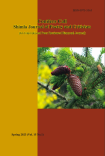“Reclaiming the Past”: Decolonization in the Early Novels of Chinua Achebe and Ngugi Wa Thiong’o
“The novelist is haunted by a sense of the past”, says Ngugi Wa Thiong’o in “The African
Writer and his Past” (Heywood ed., 1971). This paper explores tentative points of
convergence and contrast between the early novels of Ngugi Wa Thiong’oi and Chinua
Achebe, on the basis of their treatment of the “past”, their attitude to language and their
concern with the writer’s political commitment and the post-colonial enterprise of
decolonization. It looks at Achebe’s trilogy, with special reference to Arrow of God and
Thiongo’s Weep Not Child and The River Between, in light of Leopold Senghor’s view that
African art differs from the European in that it is functional, collective and committed.
Keeping in mind the prolific output of critical works by these two writers, the paper also
examines their critical statements and political stance.
In his well known article, “The Role of the Writer in the New Nation” (1964), Achebe draws
upon Frantz Fanon and defends the writer’s role as a cultural nationalist. He declares:
African people did not hear of culture for the first time from Europeans.
He emphasizes that the writer’s duty was to help the African people regain the dignity that
they had “all but lost in the colonial period”, by showing them “in human terms what
happened to them, what they lost”.
Namita Sethi

